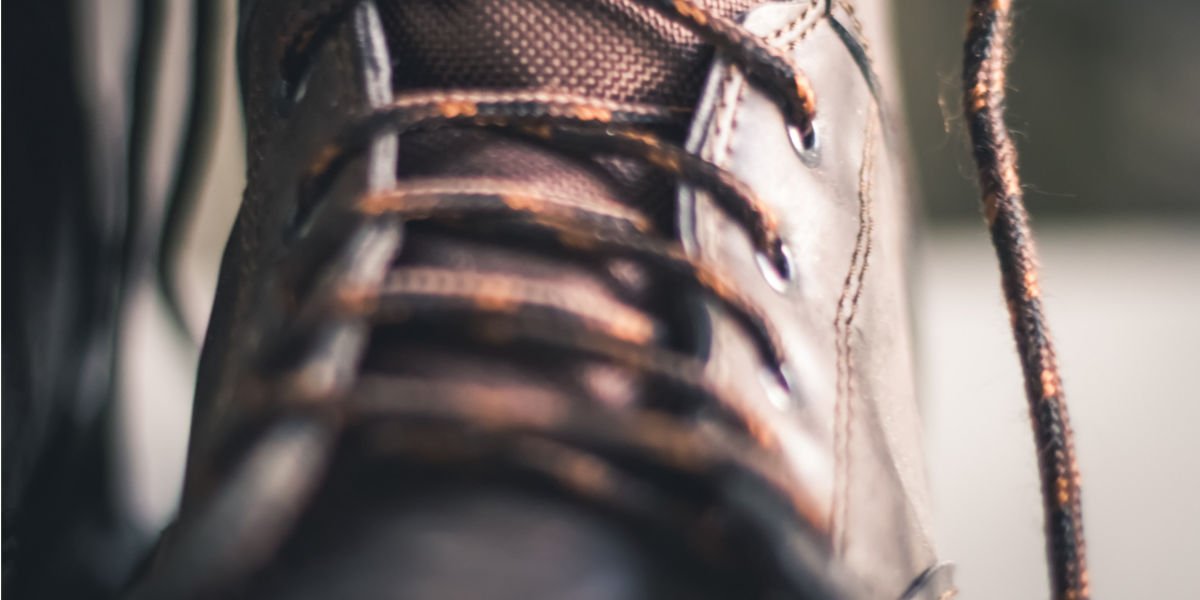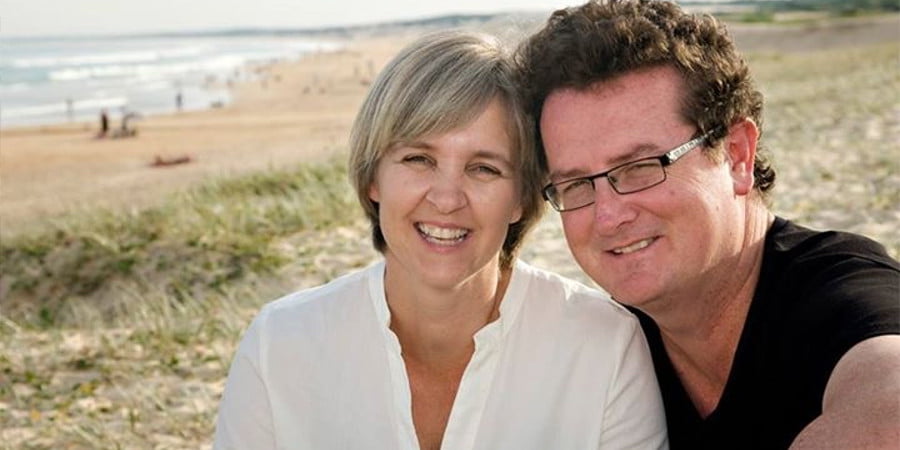“Can I pray for you?” It’s a question I am often asked. Just once I’d like to say “no”.
I preach and teach at a lot of different churches and there is always someone moved by the sight of my Parkinsons driven tremors to seek me out to pray with me. Some are very confident, others are very nervous. They have often just completed a course on healing prayer and their approach is an act of stepping out in faith. They always have the best intentions. We find a quiet place and they pray. Man, do they pray. Always for healing. Always with great conviction.
It’s quite touching and a lovely expression of faith. So I always try to receive it with the goodwill with which it is intended.
But I do wonder if people consider that it may be quite discouraging to have a continual stream of people praying fervently for your healing and to remain unhealed. I am pretty comfortable with the knowledge that God may heal me and that he may not, and that if probabilities are anything to go by it’s likely “not”. I am content with the knowledge that whether healed or not my condition will be an opportunity for growth I would otherwise have missed out on. So I am not distressed by those who claim the authority to cast out my disease in the name of Jesus, but what about those who are?
So here’s my request. Pray for me. By all means pray for me. Approach me and ask if you can pray with me. I mean that. It’s a wonderful expression of care. But pray carefully. Please don’t command the disease to leave my body (it’s a cellular dysfunction – it can’t hear you or obey you). Please don’t claim God’s healing power over me (be honest about the fact that God rarely heals major diseases, although he does seem to be good with sore backs and necks). Rather pray for God’s grace to be manifest in my life, to make me more like Jesus. Acknowledge that you don’t know whether God will heal me this side of eternity, that it’d be great if he did, but that whether healed now or in the kingdom that I might know his goodness and strength to live the life he has called me to. And be aware that one day when you ask if you can pray with me I just might say no. It won’t be anything personal. Indeed I hope you will pray for me when you get home. It will just be that I may grow weary of being prayed for all the time. Not very spiritual I know, but I am only human.







Hi Scott
Thanks for this post. It’s very similar to my journey after a diagnosis of type 1 diabetes nearly 15 years ago. It was actually quite damaging to my faith for a while and I often rejected offers of healing prayer as I was too fragile to cope with other people’s expectations of healing.
I really appreciate it when people pray for God to sustain me and emphasise his love, regardless of whether physical healing takes place or not. I don’t like it when people unintentionally create binary categories – God loves you and heals you or … he doesn’t. Where does that leave a person?
Right at the beginning, I thought God said to me that his grace was sufficient, but few people ever began there. The most helpful thing to me was gaining a new perspective of eternity.
This ‘lifelong condition’, which certainly caused significant problems for my children in utero, is actually very short-lived from an eternal perspective and there is a new body waiting for me, which will not decay (any healing on earth, however miraculous, is only temporary).
The late Rev Dr Christopher Newell, a medical ethicist and advocate at UTAS, lived with various disabilities and participated in numerous panels, discussions and seminars as well as regularly preaching and writing prolifically. On one occasion at the end of a seminar on Christian approaches to medical ethics, the priest prayed at the end: he prayed detailed prayers of thanks for the wisdom of the first three contributors but his prayer for Christopher ignored his contribution and was solely based on healing for his disabilities. He was reduced to a disease, rather than upheld for his estimable skills. Christians can do better than this.
Beth
Thanks Beth. I too have found the perspective of resurrection and eternity very helpful.
Bingo! Thank you for expressing so well what I struggle to communicate to others about my health. I have discovered for myself so often it born of the other person inability to sit with pain, disability and suffering. They are moved to respond to the distress they feel in their heart at my suffering but fail to listen to the Holy Spirit promptings for this situation and that is where they blunder. Knowing this helps but it still doesn’t stop my shields go up like a bank teller in a robbery.
Thanks for sharing Anne
Amen, amen and amen. Thank you for this very refreshing, honest and candid blog. I do not question your spirituality and admire your humanness!
Thank you Scott.
Thanks paul
Thanks for putting this out there Scott. I have struggled recently with similar thoughts over some of the prayers, well meant, for my husband’s healing after a severe brain injury following a bike accident.
God’s promise is Emmanuel, God WITH us.
It is unfair to hold up expectations, as expressed by you and others above, that have someone hanging out for a miraculous (temporary – this life) restoration. When the reality is that getting through each day needs God WITH us to make it; with slurred speech, fuzzy thinking, poor memory recall, lack of recognition of places and faces etc and trying to hold down a job that uses all those skills.
Also Scott, I have come to contemplate that if God’s primary call is to relationship/love of him and with each other – then I seriously wonder about a different aspect of prayer where people want others to join in praying for someone who they have never met by way of prayer chains and networks, just so there can be more people praying…. will God change His mind about healing if more people pray… I seriously doubt it… but would love an opportunity to reflect on this aspect more
Thanks for sharing your story. Very sorry to hear about your husband.
I suspect the value of prayerchains is the opportunity for people to join in supporting the person in need rather than greater efficacy because of greater numbers
Really appreciated this (saw Lucy’s share on facebook) – did you ever see the little reflection David wrote in a similar vein? I’ve taken the liberty of including it:
LOVE AND PRAYER ”que tout ne soit pas amour, voila ce dont souffre l’amour” [that everything is not love – that is what love suffers from] Paul Ricoeur
One of the privileged aspects of the last eighteen months experience of illness has been to know that I am loved – from the intimate love of my wife and family, through the encouragement of friends and colleagues, to the professional care of doctors and nurses. Although I can at times be frustrated, scared, sad, overwhelmed and physically low, I reckon I have had an experience of God, in the sense of the love that undergirds the world. Of course I want to be well. But when people pray for me I want them to know that I am not far from God. And in a way I would rather they pray for people who are. (I hope this doesn’t sound ungrateful – it’s just that their love for me has already borne wonderful fruit.) I would want my friends to pray for those who do not experience love – for those who experience grief, fear, persecution, isolation. It is those who cannot see their life experiences in the context of love that need our solidarity – for example, the baby removed from their family, the child growing up in poverty, violence or exploitation, the young person for whom society has no work, the refugee whose choice of life over death finds no echo in other human hearts, even the adult who lives with uncertainties and fears that they cannot share. I value your love, companionship and care. I deeply appreciate your prayers for us. But prayer is also the first step toward focussing love and a passion for justice where it is needed, those places where everything is not love.
David Hunter 2002
Hi jeanette
I hadn’t read David’s reflection before. Thanks for sharing it. I found it both Wise and moving.
Scott
I also have a life changing rare blood disorder affecting my immune system. Researchers don’t even know how it is caused, let alone how to put it into remission. I have been diagnosed now for 6.5 years and God is yet to heal me.
Every change of medication brought hope that maybe, just maybe it would go away. Not the case, indeed, many medications have done more damage than good! Couple this with a tendency towards depression and anxiety, that also has not been healed despite much prayer and I am left wondering?
I have been to the best prayer healers, read the books etc. It just hasn’t worked yet. Do I continue to use yet or do I accept the reality that this is my “thorn in my side” that is my lot?
It has meant altering my life and my life goals 100%. I am fragile, I tire easily, I get upset easily, I get sick often and take forever to get better. Yet if truth be told I am grateful for the things God has taught me on this bumpy ride.
I know my husband loves me. I know my parents care. I have reconciled issues with my dad that would have festered without this experience. I know that drugs/meds don’t cure everything including mental illness. I know my home group cares enough to visit me in a psych hospital.
I know God cares. I have had to draw from him so much. It creates an empathy that I can share with others in their struggles with mental illness and/or chronic disease.
I don’t expect healing any more (much to my immunologist’s shock). I just pray that God will show me my place and how he wants to use me and use this experience in serving others and building relationships, in loving others.
May God bless you and use you just as you are!
Naomi
Hi Naomi,
Thanks for sharing. Sounds like yours has been a painful journey, but one in which you have come to know God in new ways.
I don’t know if you have seen my post on healing – . You might fnd it helpful.
Blessings,
Scott
i understand. thank you for articulating this so well.